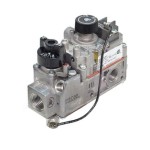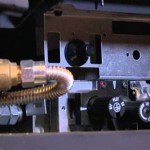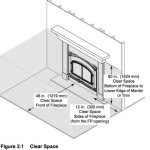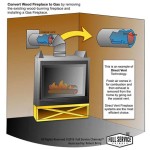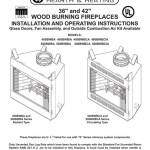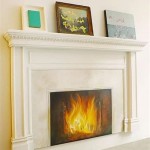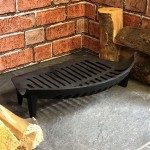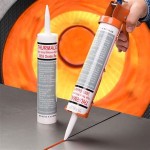New Gas Fireplace Smells: Understanding and Addressing the Issue
The installation of a new gas fireplace brings with it the promise of warmth and ambiance. However, a common concern shared by many new owners is the presence of unusual smells emanating from the unit during its initial uses. These odors can range from slightly unpleasant to concerning, prompting questions about safety, proper installation, and long-term performance. Understanding the potential causes of these smells and knowing how to address them is crucial for ensuring both safety and enjoyment of the new fireplace.
The source of the smell from a new gas fireplace is rarely a gas leak, although that possibility should always be ruled out first. More often, the odors are related to the manufacturing processes or the burning off of residual materials from the fireplace's construction. These materials might include oils, paints, adhesives, or even dust that has accumulated during shipping and storage. While typically temporary, the intensity and persistence of these smells can vary depending on the specific model, the materials used, and the ventilation within the room where the fireplace is installed.
Burn-Off of Manufacturing Residues
One of the most prevalent causes of new gas fireplace smells is the burn-off of manufacturing residues. During the production of a gas fireplace, various substances are used, including lubricants, protective coatings, and adhesives. These materials can remain on the surfaces of the fireplace components, such as the metal firebox, the ceramic logs, and the burner assembly. When the fireplace is first ignited, the heat generated causes these residues to vaporize, releasing volatile organic compounds (VOCs) into the air. This process is analogous to the "new car smell," though with a potentially different chemical composition.
The specific smell associated with burn-off can vary depending on the type of residue involved. Some owners report a burning plastic or rubber smell, which may be attributed to the volatilization of protective coatings or adhesives. Others describe a metallic or oily smell, stemming from lubricants used in the fireplace's mechanisms. These smells are usually most pronounced during the first few uses of the fireplace and tend to diminish as the residues are fully burned off. Adequate ventilation during this initial burn-off period is essential to minimize the concentration of VOCs in the air.
The duration of the burn-off period can vary considerably. Some fireplaces may only require a few hours of operation to dissipate the smells, while others may need several uses over a few days or even weeks. Factors such as the fireplace's size, the intensity of the heat, and the ventilation of the room all contribute to the speed at which the burn-off occurs. It is generally recommended to run the fireplace at its highest setting during the initial burn-off to accelerate the process. However, it's crucial to monitor the fireplace and surrounding area for any signs of overheating or malfunction.
The Role of Ceramic Logs and Decorative Components
The ceramic logs and other decorative components within the fireplace can also contribute to the initial smells. These logs are often manufactured using a combination of ceramic materials and paints or coatings to achieve a realistic appearance. During the first few uses of the fireplace, these paints and coatings can release odors as they are exposed to high temperatures. Furthermore, the ceramic materials themselves may contain trace amounts of organic compounds that vaporize during the heating process.
The smell associated with the ceramic logs is often described as a dusty or chemical odor. Similar to the burn-off of manufacturing residues, the smell from the logs typically diminishes with each use as the volatile compounds are released. The intensity of the smell can be influenced by the quality of the materials used in the logs and the specific manufacturing processes employed. Some higher-end models may utilize more refined materials and processes, resulting in less noticeable initial odors. To mitigate the smell, ensuring proper ventilation during the initial burn-off period is important, and in some cases, wiping down the logs with a damp cloth prior to first use might help remove any loose dust or residue.
The placement and arrangement of the logs can also play a role in the generation of smells. Overcrowding or improper positioning of the logs can restrict airflow around the burner, leading to uneven heating and potentially exacerbating the release of odors. Consulting the manufacturer's instructions for proper log placement is essential to ensure optimal combustion and minimize potential smells. Furthermore, avoid placing any foreign objects, such as decorations or flammable materials, within the fireplace enclosure, as these can also contribute to unpleasant odors and pose a fire hazard.
Addressing Concerns About Gas Leaks
While the smells emanating from a new gas fireplace are often attributable to burn-off and material off-gassing, it is essential to rule out the possibility of a gas leak. A gas leak can pose a serious safety hazard, and any suspicion of a leak should be addressed immediately. The smell of natural gas or propane is typically described as a rotten egg or sulfur-like odor, which is deliberately added to the gas to make it detectable. If this type of smell is present, it is vital to take immediate action.
If a gas leak is suspected, the first step is to evacuate the premises and avoid using any electronics that could potentially cause a spark. Contact the local gas company or a qualified gas technician immediately to investigate the situation. Do not attempt to locate or repair the leak yourself, as this could be dangerous. A gas technician will use specialized equipment to detect and pinpoint the source of the leak, and they will be able to make the necessary repairs to ensure the safety of the fireplace and the surrounding environment.
Even if the smell is not distinctly that of a gas leak, it is always prudent to have the fireplace professionally inspected after installation to verify that all connections are properly sealed and that the gas supply is functioning correctly. A professional inspection can provide peace of mind and ensure that the fireplace is operating safely and efficiently. Regular maintenance and inspections are also important for the long-term performance and safety of the gas fireplace.
Beyond the specific causes discussed above, several other factors can contribute to smells emanating from a new gas fireplace. The type of gas used (natural gas or propane) can influence the smell, as propane tends to have a slightly stronger odor than natural gas. The ventilation within the room where the fireplace is installed is also crucial, as poor ventilation can trap odors and prolong the burn-off process. Additionally, the quality of the installation and the specific model of fireplace can impact the intensity and duration of the smells.
To minimize the impact of these smells, it is recommended to run the fireplace at its highest setting during the initial burn-off period, ensuring adequate ventilation by opening windows or using exhaust fans. Regular cleaning of the fireplace enclosure can also help to remove dust and debris that may contribute to odors. If the smells persist after several uses or if you suspect a gas leak, contact a qualified gas technician for professional inspection and repair.

Here S Why Your Gas Fireplace Stinks Full Service Chimney

Here S Why Your Gas Fireplace Stinks Full Service Chimney

Why Your Gas Fireplace Stinks Chimney Experts

Vent Free Fireplace Odor

Why Does My Gas Fireplace Smell Dreifuss Fireplaces

Here S Why Your Gas Fireplace Stinks Full Service Chimney

Why Is There A Smoky Smell Coming From My New Gas Fireplace Or Stove We Love Fire

Vent Free Fireplace Odor

Why Does My Propane Fireplace Smell Like Kerosene All Valley Repair

Gas Fireplace Odors

